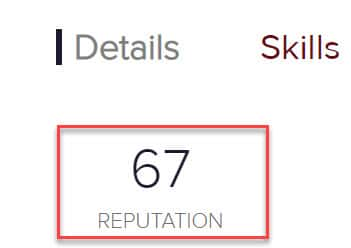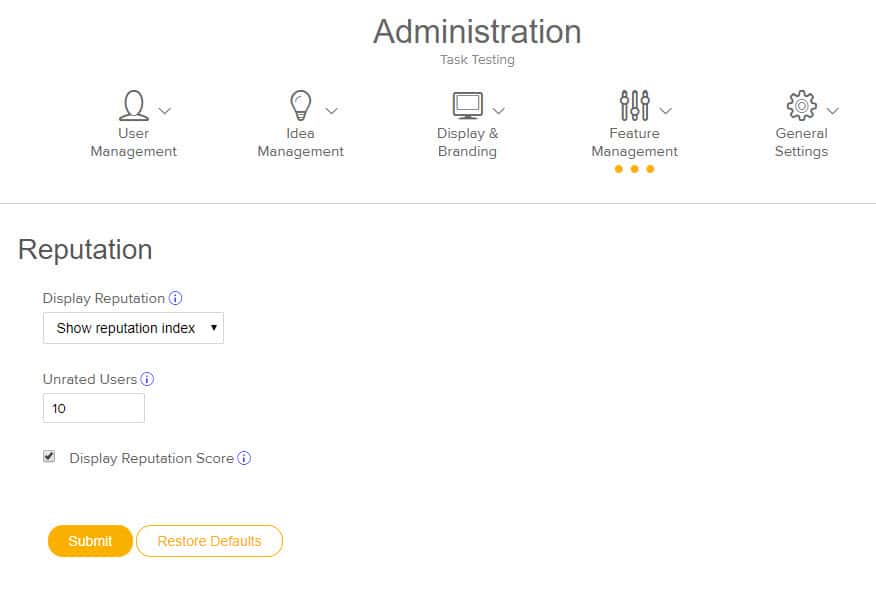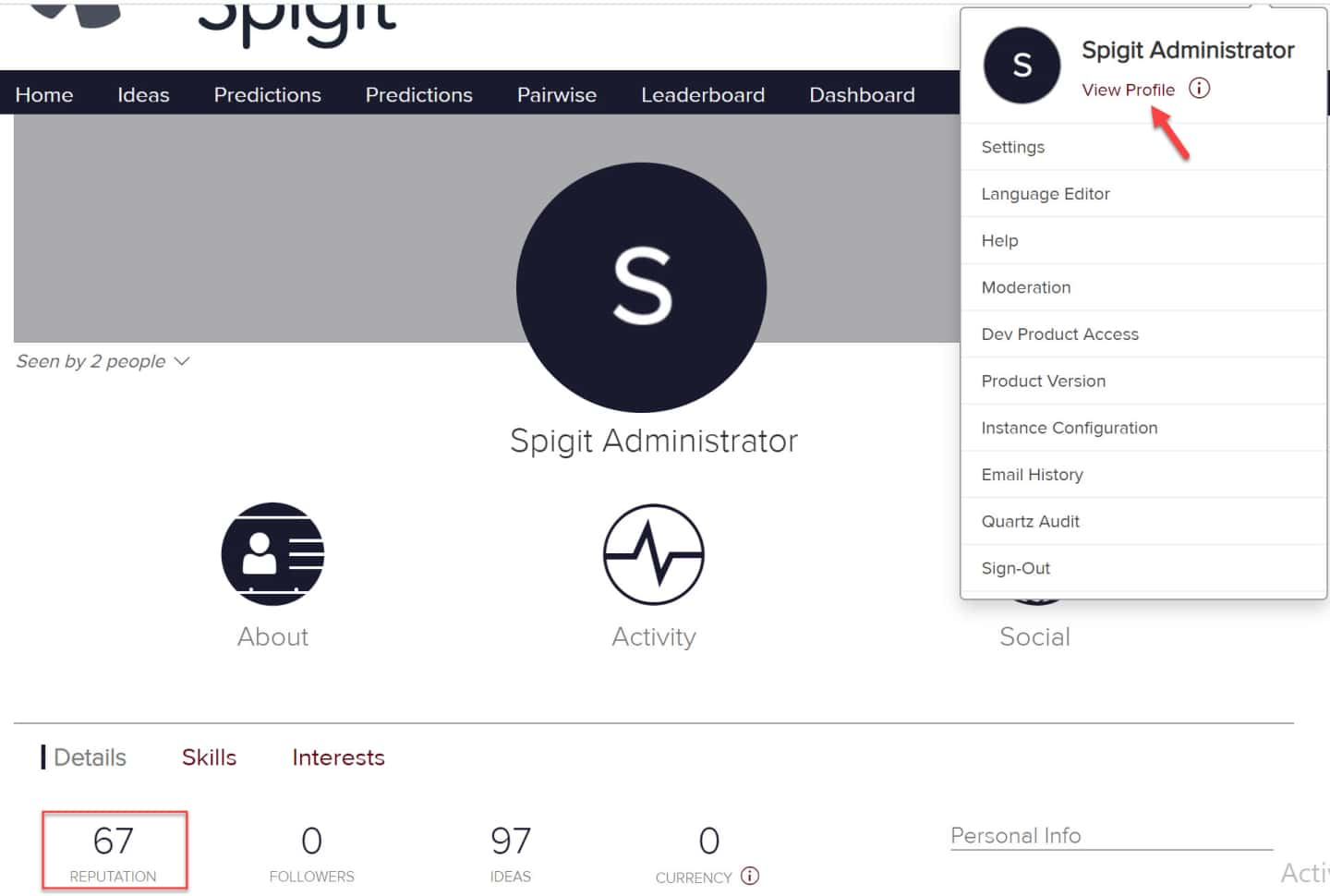Reputation
Introduction
Reputation is a patented feature within Planview IdeaPlace, designed to measure the quality and effectiveness of participants’ activities based on the input of the community. Generally speaking, reputation is used to weight things like earned currency and general reviews.

Reputation on the User Profile > About > Details tab
NOTE
Reputation does not influence what ideas appear in Pairwise voting. Also, the idea owner's reputation is not influenced by the Pairwise results.
How it Works
By default, reputation is enabled across the entire instance and updates hourly. However it can be configured to apply to single challenges. In addition, sentiment analysis is included in the reputation algorithm and is used to help determine the quality and impact of comments and replies. The sentiment of comments impacts the idea owner's reputation. The sentiment of replies to comments impacts the reputation of the comment submitter. For example, if Jane submits an idea and participants vote it up, Jane’s reputation will increase. Alternatively, if participants vote Jane’s idea down, her reputation will decrease. The exact amount Jane’s reputation will increase or decrease is determined by a number of factors, including the voting participant’s own reputation.
Global Reputation
Reputation enables users to build persistent reputations that encompass all community and challenge activities and continue to apply to across new communities that members join. For example, when enabled, a member with a large number of well-liked ideas will carry his/her reputation to each new community the member joins. For existing communities, switching a site to All Community Reputation recalculates all reputation data—including leaderboards—and displays the global reputation for each member in each community.
Single Community Reputation/Single Challenge Reputation
Single Community/Challenge Reputation restricts user reputations to the community or challenge in which the activity occurs so that users restart building their reputation from the ground up in each community or challenge. For example, users may have different reputations for different challenges. If global reputation is disabled in a parent community, all challenges of that community will be using Single Community Reputation.
Reputation Calculation Method
Reputation is a measure of the quality of member contributions, determined collectively by other community members who interact with each other. Among other things, reputation goes up when other members:
- Vote positively, or give a high star or review rating to ideas.
- Post positive comments on ideas, provide a positive reply to comments or vote up a comment.
- Provide comments or replies with positive sentiment. Sentiment analysis is used to help determine the quality and impact of comments and replies. Comments must meet a minimum word count to be impacted by the comment sentiment.
Reputation goes down when other members:
- Vote negatively, or give a low star or review rating to ideas.
- Post negative comments on ideas or provide a negative or disapproving reply to comments.
- Provide comments or replies with negative/disapproving sentiment. Sentiment analysis is used to help determine the quality and impact of comments and replies. Comments must meet a minimum word count to be impacted by the comment sentiment.
NOTE
Activity alone (voting, following an idea, etc.) will not activate a user's reputation. Contributions must be made that cause the community to respond in some fashion. Otherwise, users will remain unrated (default reputation for unrated users is 50).
The higher a member's reputation, the more impact they have on other users’ reputations and idea ratings.
Reputation Policy
IdeaPlace has the following assigned reputation policies: All users start with a reputation of 50 and then fluctuate depending on the amount and quality of feedback received. A user with the role of Expert will be assigned a reputation of 100.
Excessive Voting or Posting
A member cannot raise his/her reputation simply by posting a lot of ideas or comments. In fact, it may drop if IdeaPlace detects spamming or simple cheerleading behavior that does not add a lot of value. Depending on the type of behavior, member reputation may drop to a very low value or even zero for a day or more when the system notices excessive voting or posting in a short period of time. After the "penalty box" phase of the zero reputation, the user will return to their actual reputation, which the system was constantly calculating in the background without interruption.



